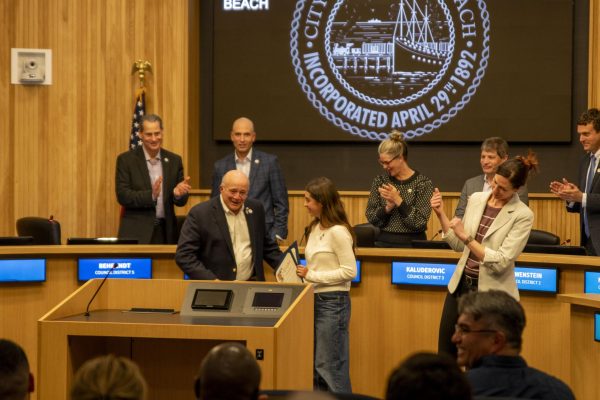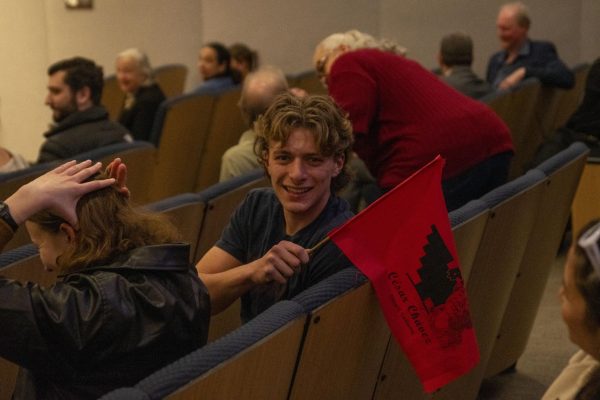In AP Spanish class, learning about Cesar Chavez and his impact on the Hispanic community inspired senior Paula Valenzuela. Remembered for his contributions as a Hispanic labor leader and civil rights activist, the nation recognizes March 31st, his birthday, as Cesar Chavez Day. Valenzuela questioned why RUHS had yet to officially celebrate him and found a perfect opportunity to bring awareness to the commemorative holiday. Her California State Seal of Civic Engagement project paved the way for her proposal to RBUSD to become a city-wide effort.
“Part of receiving the [California State] Seal of Civic Engagement is that you have to present [your project] to a board of evaluators, and they determine whether or not you deserve the seal. One of my judges ended up being [Redondo Beach] Mayor Jim Light, he was very inspired. He ended up offering to not just move the project forward but actually to present a proclamation for the entire city to celebrate Cesar Chavez.”

Valenzuela’s first step to have Cesar Chavez Day recognized was discussing the proposal with her friends from the Spanish Honors Society (SHS) and enlisting them to help fill petitions to present to the school board.
“When I first started petitioning, the number one question I was hit with was, ‘Why should I care? If I’m not Hispanic and I don’t come from a farm, how does this impact me?’ I would tell them how Cesar Chavez didn’t just help Hispanics, he created educational systems, radio stations to keep people informed, made housing for Filipino communities and was one of the first prominent American figures to publicly advocate for LGBTQ rights,” Valenzuela said.
Senior Oriana Chovit helped the initiative by gathering signatures from students around campus and presenting to the school board alongside Valenzuela.
“I had a unique experience as a dual immersion kid that grew up speaking Spanish in school. Though I don’t directly identify with the kind of group he was helping, being Bolivian, I still see the importance in recognizing the changes he vouched for in favor of the Latino community. Having his birthday celebrated is such a special thing,” Chovit said.
In less than a week, Valenzuela conjured support from various clubs and with the help of Chovit, gathered nearly 400 signatures.

“It wasn’t hard to get signatures. I found that the movement appealed to a lot of people, especially Latinos, at our school. Even if people didn’t know who [Chavez] was, I would explain the agricultural and labor movements and they became pretty inspired. It was harder, however, to get administrators on board because some of them questioned how it would work as a no-school holiday. Once we explained the logistics of fitting it into a teacher development day, they signed,” Chovit said.
Sharing Chavez’s legacy with a larger audience continued with the help of clubs, such as FIlipino Culture Club and Black Student Union. According to Valenzuela, this outreach helped her find groups and individuals who felt like they weren’t receiving enough representation on campus.
“When you’re uplifting one minority group, you’re really uplifting them all. Cesar Chavez is a testament to that. He could have uplifted just Hispanic groups, [but] he tried to bring up everyone along with him,” Valenzuela said. “When we help each other, when we support each other, we are all being uplifted. That’s a mindset we should carry, no matter what group of people you’re with. We need to look out for each other.”
Cesar Chavez’s nonviolent activism is still significant to ongoing political debates and movements, particularly in areas of education and community support. He taught that change would come if peace was held out through patience and perseverance. Chovit emphasizes the influence that on-campus Latin clubs can have on spreading awareness for Chavez’s causes.
“Though our curriculum provides education for all communities, unless you’re taking AP Spanish, you don’t get to learn as much about Latino history and culture. Having clubs host fun activities this year helps bring appreciation for all he has done as the biggest Latin leader we’ve had in the recent century,” Chovit said.


